
Cabinda: Angola's Enchanted Enclave
Nestled between the Democratic Republic of the Congo and the Republic of Congo, Cabinda is a unique enclave of Angola rich in natural beauty and cultural heritage. This small province is famed for its lush rainforests, pristine beaches, and vibrant local culture, making it an intriguing destination for adventurous travelers. Cabinda's landscape is dominated by verdant forests teeming with biodiversity. The Maiombe Forest, often referred to as the 'Amazon of Africa,' offers intrepid explorers the chance to see a variety of wildlife, including rare primates and exotic birds. Nature enthusiasts will find endless opportunities for hiking, bird watching, and eco-tourism. The city itself exudes a laid-back charm, with friendly locals and a mix of colonial and modern architecture. The local markets are a feast for the senses, brimming with colorful produce, handcrafted goods, and aromatic spices. Don't miss the chance to try local dishes like funge and mufete, which offer a taste of the region's culinary traditions. Cabinda's coastline is equally captivating, boasting stretches of unspoiled beaches perfect for relaxation and water activities. The crystal-clear waters are ideal for swimming, snorkeling, and fishing. For those interested in history, the city also has several landmarks and museums that tell the story of its rich past, including the Museum of Cabinda which offers insights into the local culture and history.
Local tips in Cabinda
- Currency: The local currency is the Angolan Kwanza (AOA). Make sure to carry small denominations for local purchases.
- Language: Portuguese is the official language, but many locals also speak local languages such as Kikongo. Learning a few basic phrases in Portuguese can be helpful.
- Transportation: Public transportation options are limited. Renting a car or hiring a local driver can be the most convenient way to explore the region.
- Safety: While Cabinda is generally safe, it's advisable to stay updated on travel advisories and avoid remote areas without a guide.
- Health: Ensure you have necessary vaccinations and carry mosquito repellent to protect against malaria.
- Connectivity: Internet access can be spotty in some areas, so plan accordingly if you need to stay connected.
Cabinda: Angola's Enchanted Enclave
Nestled between the Democratic Republic of the Congo and the Republic of Congo, Cabinda is a unique enclave of Angola rich in natural beauty and cultural heritage. This small province is famed for its lush rainforests, pristine beaches, and vibrant local culture, making it an intriguing destination for adventurous travelers. Cabinda's landscape is dominated by verdant forests teeming with biodiversity. The Maiombe Forest, often referred to as the 'Amazon of Africa,' offers intrepid explorers the chance to see a variety of wildlife, including rare primates and exotic birds. Nature enthusiasts will find endless opportunities for hiking, bird watching, and eco-tourism. The city itself exudes a laid-back charm, with friendly locals and a mix of colonial and modern architecture. The local markets are a feast for the senses, brimming with colorful produce, handcrafted goods, and aromatic spices. Don't miss the chance to try local dishes like funge and mufete, which offer a taste of the region's culinary traditions. Cabinda's coastline is equally captivating, boasting stretches of unspoiled beaches perfect for relaxation and water activities. The crystal-clear waters are ideal for swimming, snorkeling, and fishing. For those interested in history, the city also has several landmarks and museums that tell the story of its rich past, including the Museum of Cabinda which offers insights into the local culture and history.
When is the best time to go to Cabinda?
Iconic landmarks you can’t miss
Parque Nacional do Quicama
Explore the diverse wildlife and stunning landscapes of Parque Nacional do Quicama, a must-visit national park in Angola for nature enthusiasts.
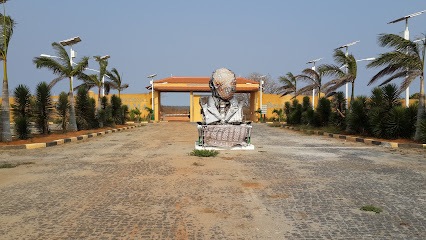
Viewpoint of the Moon
Discover the breathtaking vistas at the Viewpoint of the Moon in Belas, Angola, where nature's beauty meets tranquility in a stunning observatory setting.
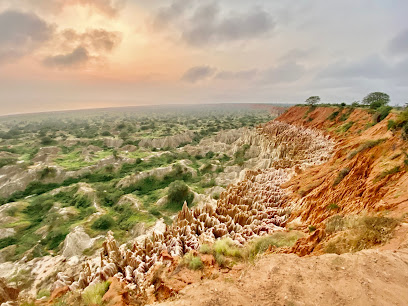
Calandula Falls
Discover the breathtaking beauty of Calandula Falls, one of Angola's most stunning natural attractions, surrounded by lush landscapes and rich culture.
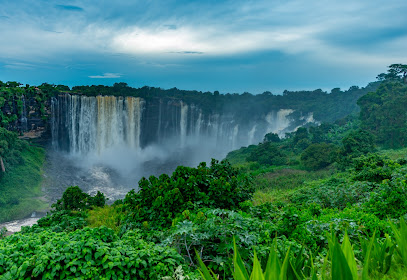
Tundavala Gap
Experience the majestic Tundavala Gap near Lubango, Angola: breathtaking views, geological wonders, and a glimpse into Angola's soul.
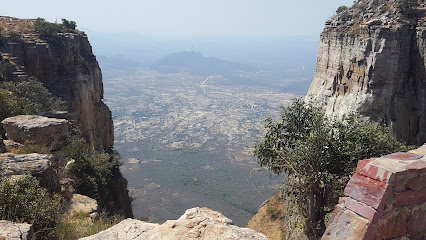
Christ the King Statue
Experience the majestic Christ the King Statue in Lubango, a towering symbol of faith surrounded by stunning landscapes and rich history.
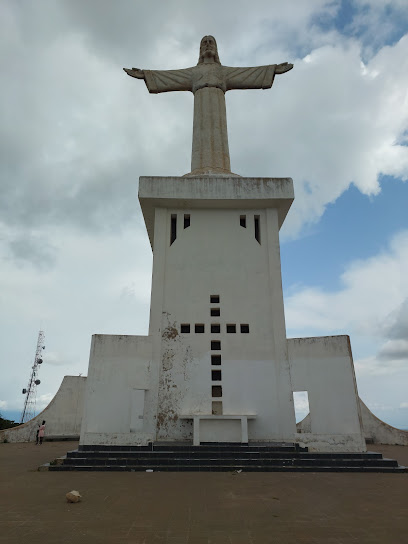
Executive Paraíso Hotel
Discover comfort and convenience at Executive Paraíso Hotel in Cabinda, the perfect base for exploring Angola's stunning landscapes and rich culture.
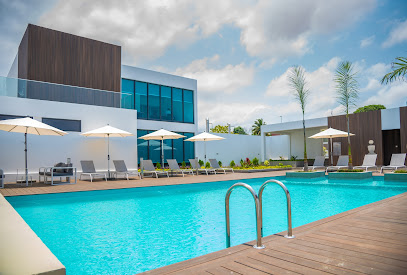
Residencial Solar do Kuito
Experience authentic Angolan cuisine in a welcoming atmosphere at Residencial Solar do Kuito, open daily for breakfast, lunch, and dinner.
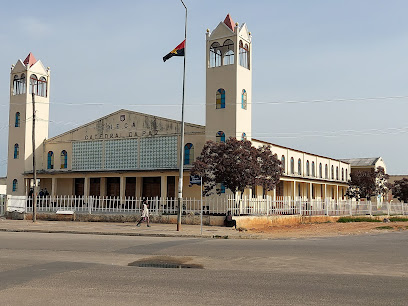
Hotel Maiombe
Discover comfort and local charm at Hotel Maiombe, your perfect base for exploring the vibrant city of Cabinda.
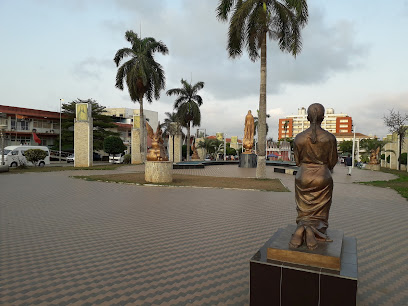
Pure and Authentic Tourism
Experience the beauty of Angola with tailored tours showcasing wildlife, culture, and unforgettable adventures in Luanda.
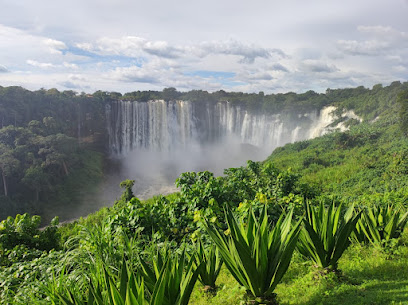
Sé Catedral de Nossa Senhora Rainha do Mundo
Experience the serene beauty and colonial charm of Sé Catedral de Nossa Senhora Rainha do Mundo, a symbol of Cabinda's rich heritage.
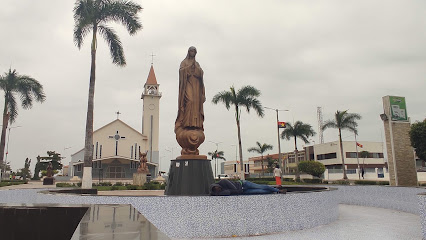
Estação Central de Luanda
Explore the vibrant atmosphere of Estação Central de Luanda, a historic train station and gateway to Angola's rich culture and scenic landscapes.
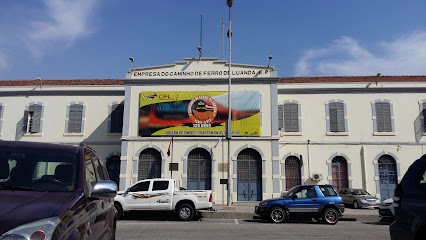
TCHIZO
Explore TCHIZO: The Heart of Coffee Culture in Cabinda, Offering Exceptional Brews and a Cozy Atmosphere.
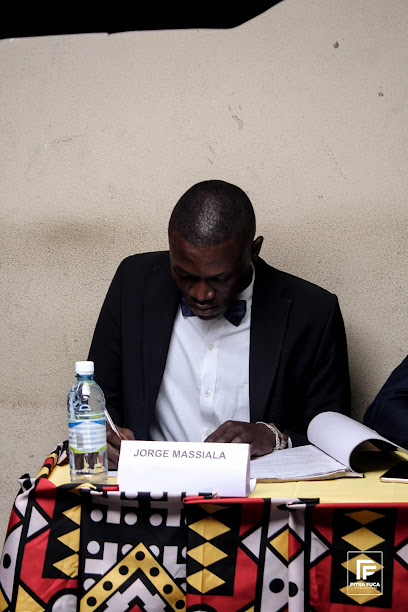
Angola Travel and Tours
Explore Angola with Angola Travel and Tours, your trusted partner for unforgettable journeys in Luanda and beyond.
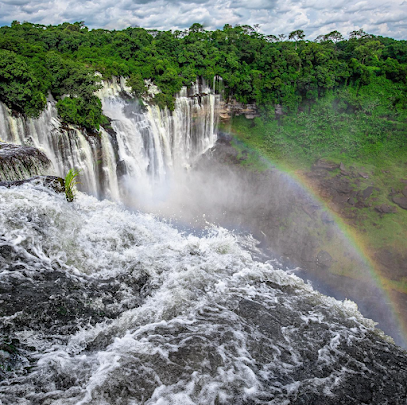
Cabinda ,Angola
Discover Cabinda's faith and heritage at the Sé Catedral de Nossa Senhora Rainha do Mundo, a serene symbol of devotion and architectural beauty.
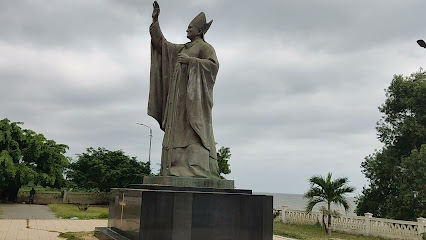
Floresta do Maiombe Viewpoint
Explore the stunning Floresta do Maiombe Viewpoint in Ncaso, Angola, where breathtaking vistas and rich biodiversity await every nature lover.
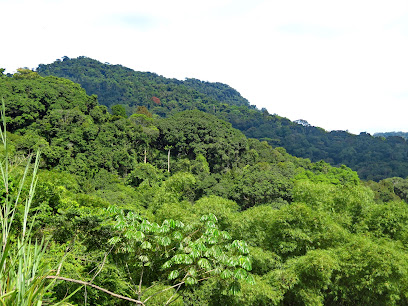
Unmissable attractions to see
Museum of Natural History
Explore Angola's natural wonders at Luanda's National Museum of Natural History, showcasing the nation's diverse ecosystems and wildlife.
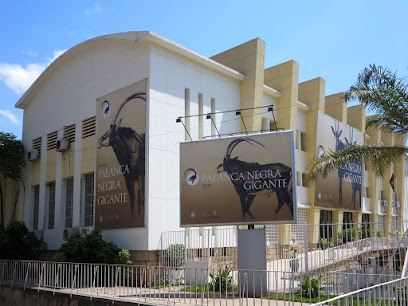
Dala Waterfalls
Discover the breathtaking beauty of Dala Waterfalls in Angola: a serene escape into nature's embrace with cascading waters and lush landscapes.
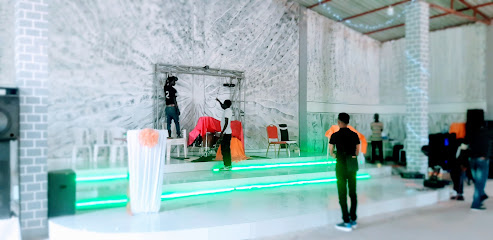
Floresta do Mayombe
Discover Angola's Floresta do Mayombe: A biodiverse rainforest offering hiking, wildlife, and cultural immersion in a serene natural setting.
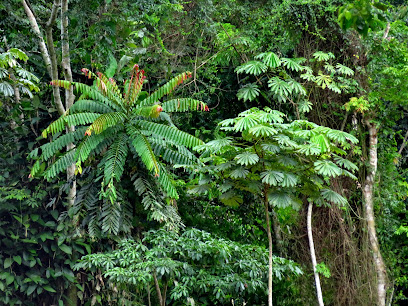
Floresta do Maiombe Viewpoint
Discover breathtaking panoramic views of Angola's lush Maiombe Forest from this tranquil viewpoint, a perfect escape for nature lovers and photographers.
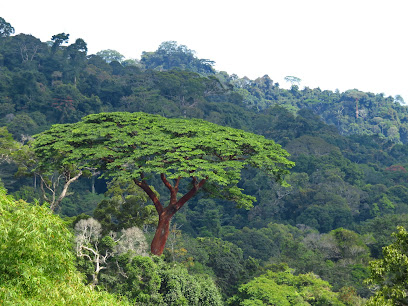
Praia Cabinda
Discover the untouched beauty of Praia Cabinda in São Tomé & Príncipe, a serene beach escape for relaxation and natural beauty.

Essential places to dine
Restaurante Apolónia
Discover authentic Angolan flavors at Restaurante Apolónia in Cabinda – where every dish tells a story.
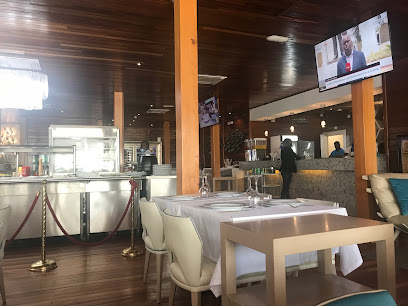
Sunset Restaurante Pizzaria
Discover delicious pizzas and local delicacies at Sunset Restaurante Pizzaria in Cabinda - a perfect spot for food lovers.
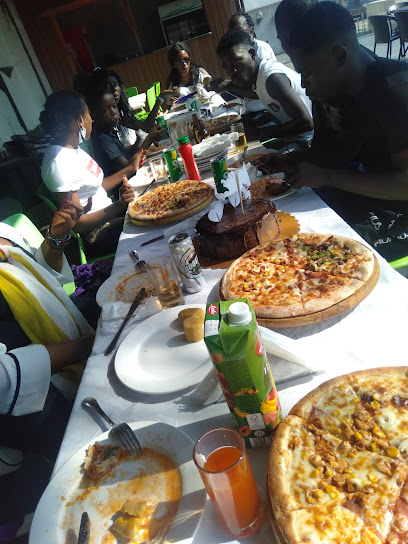
Restaurante & Bar Lato
Experience authentic Angolan cuisine at Restaurante & Bar Lato - where flavors meet hospitality in the heart of Cabinda.
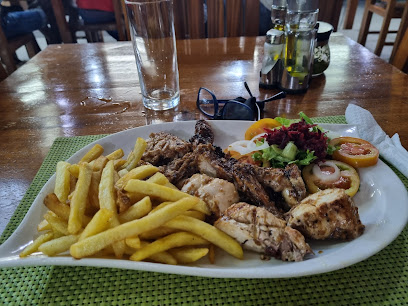
Portas do Tchizo Restaurante
Experience authentic Angolan cuisine at Portas do Tchizo Restaurante in Cabinda, where every meal tells a story.
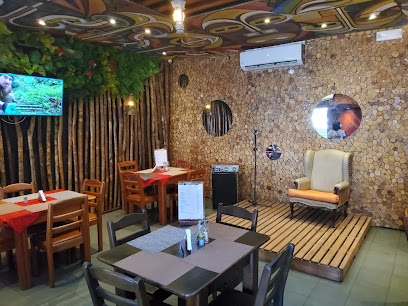
Restaurante do aeroporto
Discover authentic Angolan cuisine at Restaurante do Aeroporto in Cabinda – a must-visit for travelers seeking local flavors.
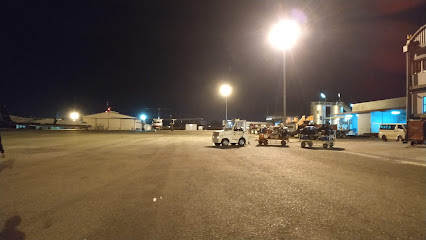
Espaço Kanawa
Discover Espaço Kanawa in Cabinda for an authentic Angolan dining experience featuring fresh ingredients and vibrant flavors.
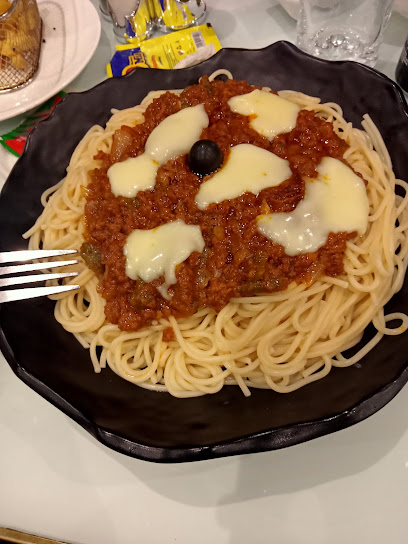
Fronteira Do Yema
Experience authentic Congolese flavors at Fronteira Do Yema – a culinary gem in Iema offering delightful dishes and warm hospitality.
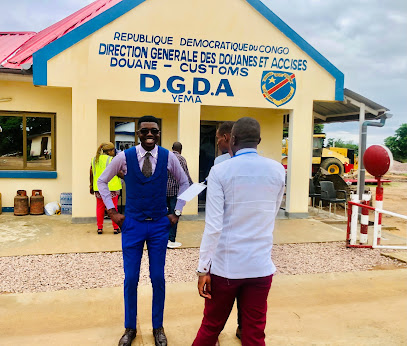
Hotel restaurante Palmerinhas
Discover exquisite flavors at Hotel Restaurante Palmerinhas in Cabinda - where local tradition meets culinary excellence.
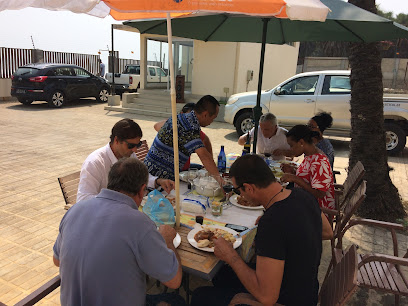
Restaurante KateKero
Experience authentic Angolan flavors at Restaurante KateKero in Cabinda – where every meal tells a story.
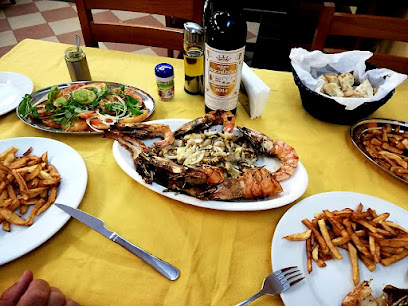
O Nosso Cantinho
Discover authentic Angolan flavors at O Nosso Cantinho in Cabinda - a cozy restaurant offering delicious local dishes and warm hospitality.
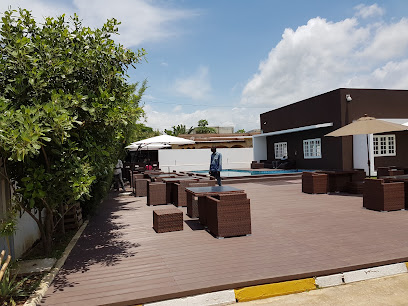
Café da Baixa
Experience authentic Angolan cuisine at Café da Baixa in Cabinda – where local flavors meet warm hospitality.
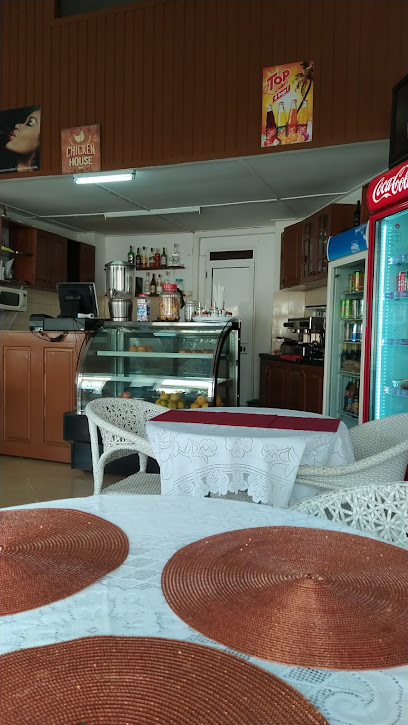
JUNGO Restaurante
Experience the rich culinary heritage of Cabinda at JUNGO Restaurante – where local flavors meet international flair.
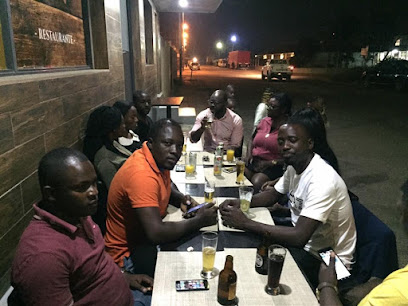
Restaurante Catchupa
Savor authentic Angolan cuisine at Restaurante Catchupa - a culinary gem in Cabinda offering delicious local dishes in a warm atmosphere.
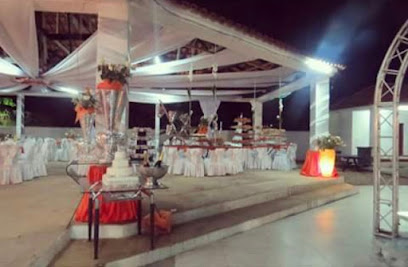
Jardins do Zôngolo
Explore Jardins do Zôngolo: A family-friendly haven in Cabinda featuring lush gardens and recreational spaces for unforgettable moments.
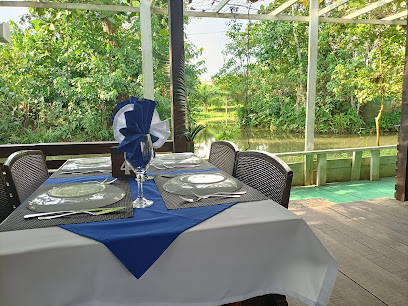
Largo Do Ambiente
Experience authentic Lebanese flavors at Largo Do Ambiente in Cabinda – where tradition meets taste.
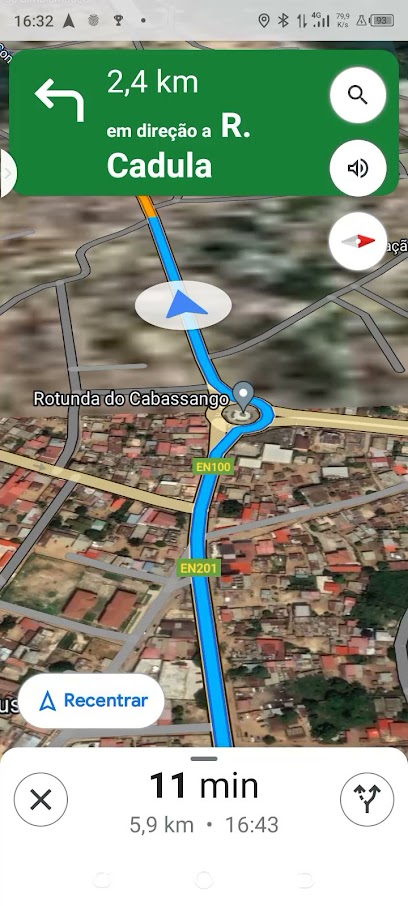
Markets, malls and hidden boutiques
Intermarket Cabinda
Discover the best of local and international products at Intermarket Cabinda, the heart of shopping in Cabinda, Angola.
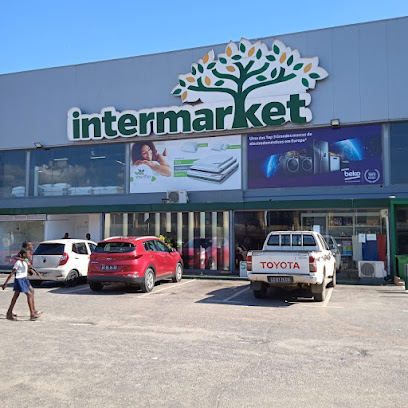
Nosso Super
Explore the vibrant flavors of Cabinda at Nosso Super, your go-to grocery store for local and international delights.
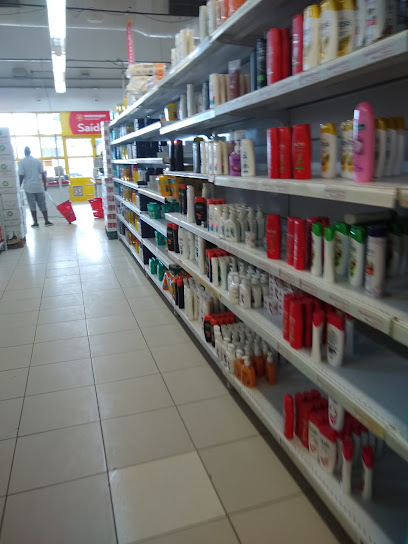
Popa la
Discover an array of shopping and dining options at Popa la, the premier shopping mall in Cabinda, where culture meets modern retail.
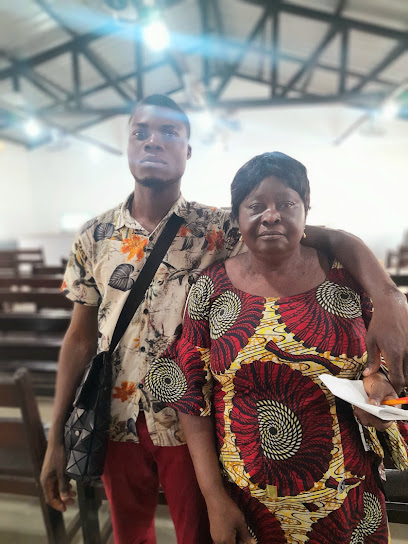
MOUNT TAI卡宾达华人超市YEMA店
Explore a unique blend of shopping and culture at Mount Tai Chinese Supermarket in Cabinda, featuring authentic products and a vibrant atmosphere.
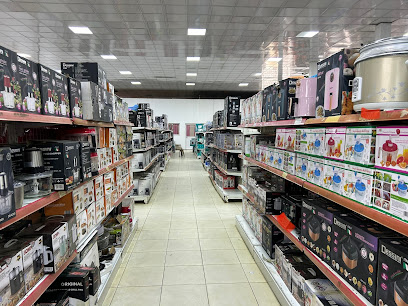
PEP Angola Cabinda Shoprite
Explore Shoprite Cabinda for an unforgettable shopping experience with a wide range of clothing for men, women, and children.

Loja ZAP Cabinda
Explore Loja ZAP Cabinda for the latest electronics and exceptional customer service in the heart of Cabinda.
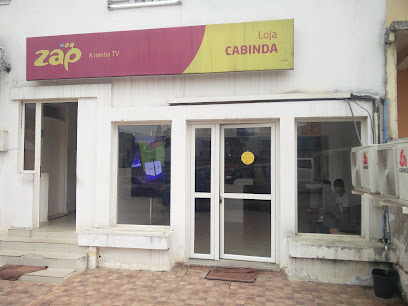
Tafresco
Explore local culture at Tafresco, a charming store in Cabinda offering handcrafted goods and traditional snacks for tourists seeking authentic experiences.

Padaria tabasco
Experience the authentic tastes of Cabinda at Padaria Tabasco, a bakery renowned for its fresh bread and delightful pastries.

Kilo&Kilo
Discover Kilo&Kilo in Cabinda: A delightful bakery offering a variety of fresh pastries, breads, and a cozy atmosphere for all to enjoy.
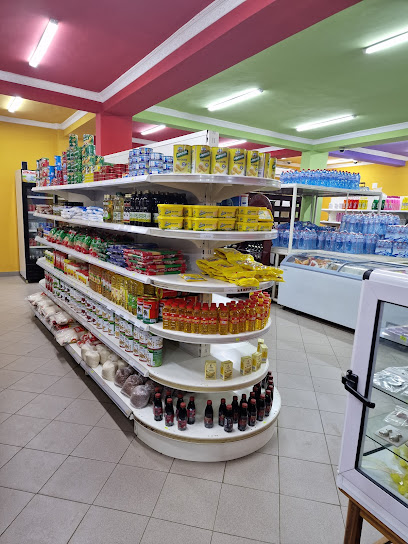
Elsa Boutique
Explore the vibrant fashion scene at Elsa Boutique, Cabinda's premier clothing store offering unique styles and exceptional service.
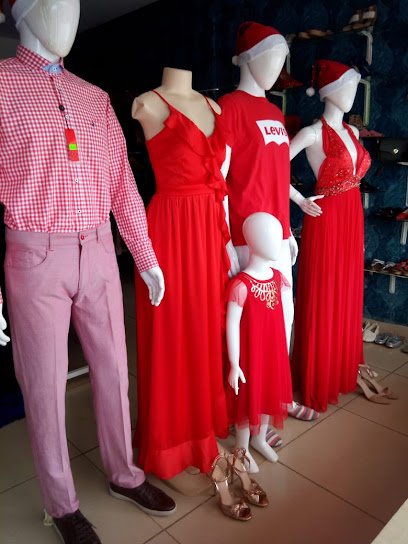
NIA boutique
Explore unique and stylish fashion at NIA Boutique in Cabinda, where local heritage meets contemporary design.
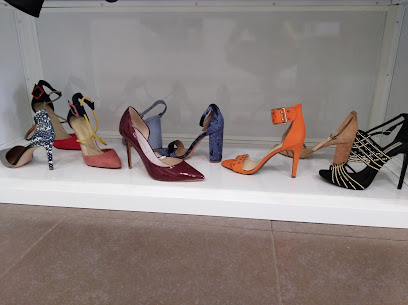
Mayra Boutique
Explore Mayra Boutique in Cabinda for exquisite local fashion and unique accessories, embodying the rich culture of Angola.
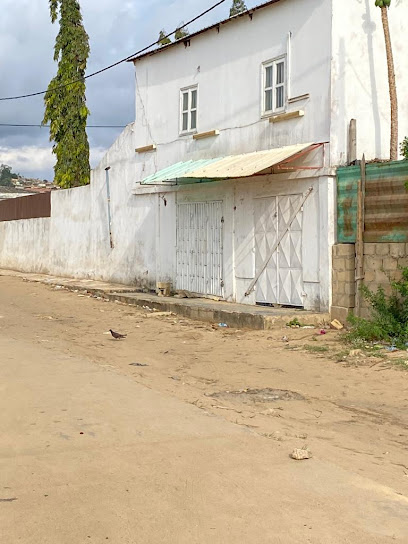
topmaria
Explore Cabinda's vibrant culture through its local store in Bairro Lombo-Lombo, where authentic products and warm hospitality await.
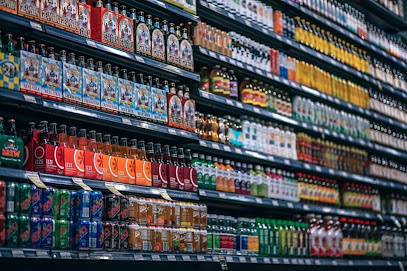
MACAIA SHOPPING
Discover the best of western apparel at MACAIA SHOPPING in Cabinda's vibrant Bairro Sao Pedro, where style meets local charm.

Armazem Do Povo
Explore the vibrant Armazem Do Povo in Cabinda, where shopping meets local culture and culinary delights for an unforgettable experience.

Essential bars & hidden hideouts
BAR 8
Discover the lively charm of BAR 8, a premier bar in Cabinda, where local drinks, vibrant atmosphere, and friendly faces await.
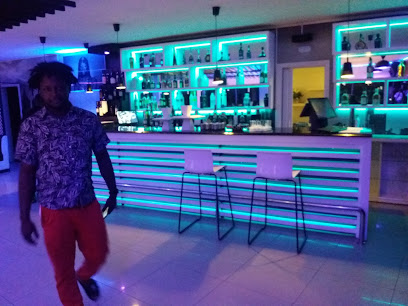
Restaurante Espanhol - Futebol Clube de Cabinda
Experience the fusion of Portuguese and Angolan flavors at Restaurante Espanhol - Futebol Clube de Cabinda, a hotspot for food enthusiasts.
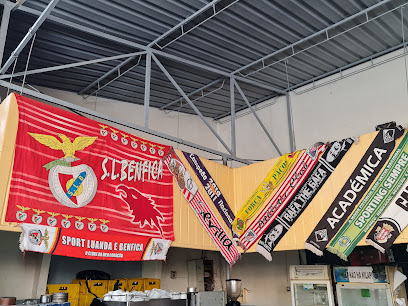
Snack bar Esquina Real
Explore Cabinda's nightlife at Snack Bar Esquina Real - a lively karaoke bar offering food, drinks, and entertainment in a vibrant atmosphere.

Mansinho Beach Club
Discover the vibrant atmosphere of Mansinho Beach Club, a perfect blend of relaxation and fun on the beautiful shores of Cabinda.
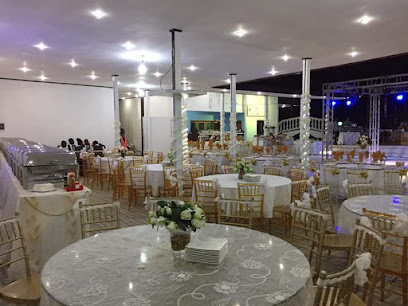
Copo Frio
Experience the vibrant nightlife of Cabinda at Copo Frio, where locals and travelers gather for great drinks and unforgettable memories.
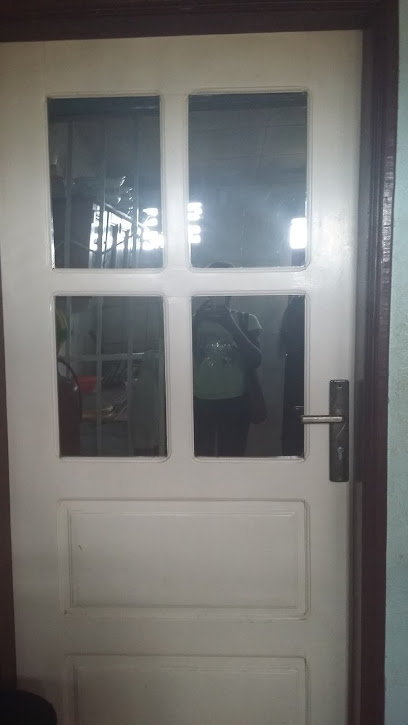
Rua Da Visão, Kilala
Discover the vibrant nightlife of Rua Da Visão, a bar in Kilala offering a unique blend of local drinks and lively ambiance, perfect for tourists and locals alike.

4 de fevereiro
Discover the lively spirit of Cabinda at 4 de Fevereiro, a bar that embodies local culture and offers a delightful array of drinks.

Bar da Lina
Discover the vibrant culture of Cabinda at Bar da Lina, where traditional drinks and local ambiance create an unforgettable experience.
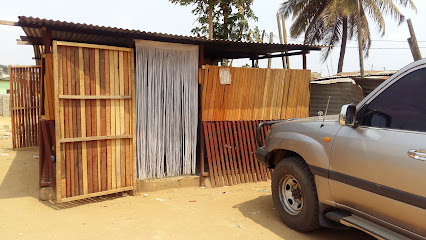
Roulote Da Emília
Experience the vibrant nightlife of Cabinda at Roulote Da Emília, where local flavors and lively atmosphere await every visitor.
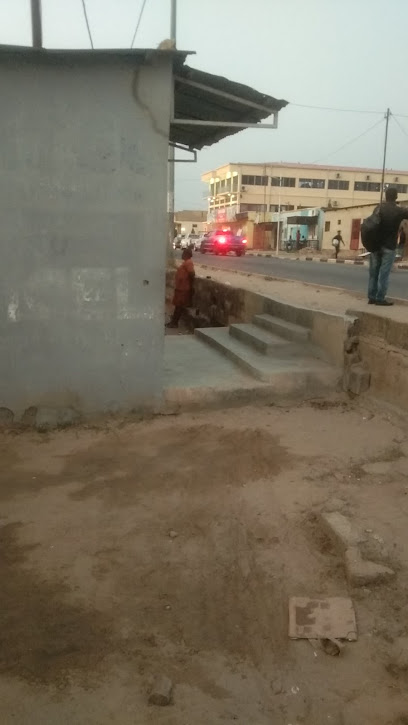
TEAM Papá Mudungo
Discover the heartbeat of Cabinda at TEAM Papá Mudungo, where live music and local culture unite in a vibrant nightlife experience.

RESTAURANTE & BAR 8
Discover the authentic flavors of Angola at Restaurante & Bar 8, a culinary haven in Cabinda offering a delightful blend of local and international dishes.
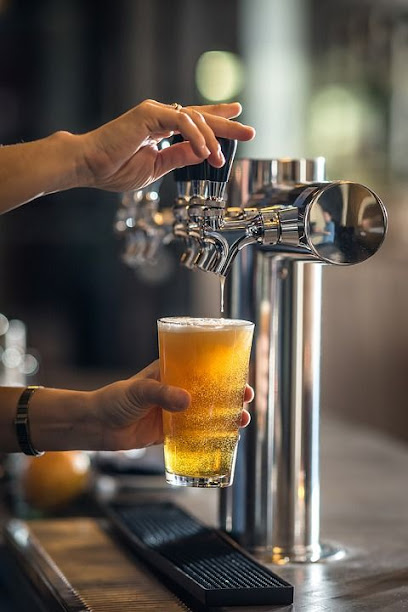
Pizzaria Restaurante Bar Lipanha
Discover the lively ambiance and mouthwatering pizzas at Pizzaria Restaurante Bar Lipanha in Cabinda, a top spot for tourists and locals alike.

Pathy liyebo
Discover the heartbeat of Cabinda at Pathy Liyebo, a live music bar where vibrant performances and local culture come alive.

Valdinho
Discover the vibrant nightlife of Cabinda at Valdinho, a lively bar that offers a taste of local culture and delicious drinks.

Local Phrases
-
- HelloOlá
[oh-lah] - GoodbyeAdeus
[ah-deh-oos] - YesSim
[seem] - NoNão
[now] - Please/You're welcomePor favor/De nada
[pohr fah-vohr/deh nah-dah] - Thank youObrigado
[oh-bree-gah-doo] - Excuse me/SorryCom licença/Desculpe
[kohm lee-sen-sah/deh-skool-peh] - How are you?Como está?
[koh-moh ehs-tah] - Fine. And you?Bem. E você?
[behn/eh voh-seh] - Do you speak English?Você fala inglês?
[voh-seh fah-lah een-glehsh] - I don't understandNão entendo
[now ehn-tehn-doo]
- HelloOlá
-
- I'd like to see the menu, pleaseGostaria de ver o menu, por favor
[goh-stah-ree-ah deh vehr ooh meh-noo/pohr fah-vohr] - I don't eat meatNão como carne
[now koh-moo kahr-neh] - Cheers!Saúde!
[sah-oo-deh] - I would like to pay, pleaseGostaria de pagar, por favor
[goh-stah-ree-ah deh pah-gahr/pohr fah-vohr]
- I'd like to see the menu, pleaseGostaria de ver o menu, por favor
-
- Help!Socorro!
[soh-koh-roh] - Go away!Vai embora!
[vah-ee ehm-boh-rah] - Call the Police!Chama a Polícia!
[shah-mah ah poh-lee-see-ah] - Call a doctor!Chama um médico!
[shah-mah oom meh-dee-koo] - I'm lostEstou perdido
[ehs-toh pehr-dee-doo] - I'm illEstou doente
[ehs-toh doo-ehn-teh]
- Help!Socorro!
-
- I'd like to buy...Quero comprar...
[keh-roo kohm-prahr] - I'm just lookingEstou só a olhar
[ehs-toh soh ah oh-lahr] - How much is it?Quanto custa?
[kwahn-too coo-stah] - That's too expensiveIsso é muito caro
[ee-so eh mwee-tooh kahr-oo] - Can you lower the price?Pode baixar o preço?
[poh-deh by-shahr ooh preh-soo]
- I'd like to buy...Quero comprar...
-
- What time is it?Que horas são?
[keh oh-rahz sah-oo] - It's one o'clockÉ uma hora
[eh oo-mah oh-rah] - Half past (10)Meio-dia e meia
[may-oo dee-ah eh may-ah] - MorningManhã
[mah-nyah] - AfternoonTarde
[tahr-deh] - EveningNoite
[noy-teh] - YesterdayOntem
[ohn-tehm] - TodayHoje
[oh-jeh] - TomorrowAmanhã
[ah-mah-nyah] - 1Um
[oom] - 2Dois
[doh-ees] - 3Três
[trehs] - 4Quatro
[kwah-troh] - 5Cinco
[seeng-koh] - 6Seis
[say-eesh] - 7Sete
[seh-teh] - 8Oito
[oy-toh] - 9Nove
[noh-veh] - 10Dez
[deh-z]
- What time is it?Que horas são?
-
- Where's a/the...?Onde fica o/a...?
[ohn-deh fee-kah oh/ah] - What's the address?Qual é o endereço?
[kwahl eh ooh ehn-deh-reh-soo] - Can you show me (on the map)?Pode mostrar-me (no mapa)?
[poh-deh moh-strahr-meh/noo mah-pah] - When's the next (bus)?Quando é o próximo (autocarro)?
[kwahn-doo eh ooh proh-see-moh/ow-toh-kah-roo] - A ticket (to ....)Um bilhete (para ....)
[oom bee-lyeh-teh/pah-rah]
- Where's a/the...?Onde fica o/a...?
History of Cabinda
-
Cabinda has been inhabited for thousands of years, with early settlers including the Bakongo people, part of the larger Kongo Kingdom which dominated the region from the late 14th century. The Kongo Kingdom was a centralized state with a complex political structure and a rich culture that left a lasting impact on the area.
-
The first Europeans to arrive in Cabinda were the Portuguese in the late 15th century. By the 19th century, Cabinda had become an important focal point for Portuguese traders. In 1885, the Treaty of Simulambuco was signed, making Cabinda a Portuguese protectorate. This treaty played a crucial role in defining Cabinda's boundaries and its relationship with Portugal.
-
During the Berlin Conference of 1884-85, European powers formalized their claims over African territories. Cabinda, due to the Treaty of Simulambuco, was recognized as a Portuguese possession, distinct from Angola. This period saw significant European influence and infrastructure development in the area.
-
In the mid-20th century, as decolonization swept across Africa, Cabinda became embroiled in the struggle for independence. The region's unique status led to complex political dynamics. While Angola gained independence from Portugal in 1975, Cabinda's status remained a contentious issue, with various factions advocating for its autonomy or integration with Angola.
-
Post-independence, Cabinda experienced periods of conflict due to its distinct identity and the presence of valuable oil reserves. The Front for the Liberation of the Enclave of Cabinda (FLEC) has been a key group in the region, fighting for independence. Despite various peace agreements, tensions have occasionally flared up, affecting stability and development.
-
Cabinda boasts a rich cultural heritage, influenced by its indigenous roots and colonial history. Traditional Bakongo customs and languages remain prevalent, and the region is known for its music, dance, and artisan crafts. Festivals and cultural events celebrate this diverse heritage, making Cabinda a vibrant and culturally rich destination.
-
The discovery of oil in the mid-20th century transformed Cabinda into a significant economic hub. The offshore oil fields contribute substantially to Angola's GDP. This economic boon has brought both development and challenges, as the region grapples with issues of resource management and equitable distribution of wealth.
Cabinda Essentials
-
Cabinda is accessible primarily via air and sea. The Cabinda Airport (CAB) has flights connecting to Luanda, the capital of Angola, and other regional destinations. Major airlines such as TAAG Angola Airlines operate regular flights. Additionally, Cabinda can be reached by sea through the Port of Cabinda, which handles both cargo and passenger ships. Road travel from the rest of Angola is challenging due to the geographical separation by the Democratic Republic of Congo (DRC).
-
Within Cabinda, transportation options include taxis, minibuses (candongueiros), and car rentals. Taxis are the most convenient but can be expensive, so be sure to negotiate the fare beforehand. Minibuses are a cheaper alternative but can be crowded. Car rentals are available but require an international driving permit. Note that road conditions can vary, so a 4x4 vehicle is recommended for more remote areas.
-
The official currency in Cabinda is the Angolan Kwanza (AOA). Credit cards are accepted in some hotels, restaurants, and larger stores, but cash is preferred, especially in smaller establishments and local markets. ATMs are available but can be unreliable, so it is advisable to carry enough cash for your needs. Currency exchange services are available at the airport and in major hotels.
-
Cabinda is generally safe for tourists, but it is crucial to stay vigilant. Avoid walking alone at night and be cautious in less populated areas. Neighborhoods such as the outskirts of Cabinda city have reported higher crime rates, so it is advisable to stick to well-trafficked areas. Petty crimes like pickpocketing can occur in crowded places, so keep your belongings secure.
-
In case of emergency, dial 113 for police and 112 for medical assistance. Cabinda has several hospitals and clinics, including the Cabinda Provincial Hospital. It is recommended to have travel insurance that covers medical emergencies. Pharmacies are available for minor health issues, and many pharmacists speak English. Always carry a copy of your passport and emergency contact numbers.
-
Fashion: Do dress modestly, particularly when visiting religious sites. Avoid wearing overly revealing clothing. Religion: Do respect local customs and traditions. When visiting churches, dress conservatively and be quiet and respectful. Public Transport: Do be polite and patient. Don't eat or drink on public transport. Greetings: Do greet people with a handshake and a smile. Eating & Drinking: Do try local dishes and accept food and drink offerings graciously. Don't refuse hospitality, as it is considered impolite.
-
To experience Cabinda like a local, visit the local markets such as the Cabassango Market where you can buy fresh produce and traditional Angolan crafts. Engage with locals, who are often friendly and willing to share stories about Cabinda’s history and culture. Don't miss visiting the Maiombe Forest Reserve for a unique nature experience. Also, try the local cuisine, especially dishes like Muamba de Galinha and funge.
Trending Landmark in Cabinda
-
Parque Nacional do Quicama
-
Viewpoint of the Moon
-
Calandula Falls
-
Tundavala Gap
-
Christ the King Statue
-
Executive Paraíso Hotel
-
Residencial Solar do Kuito
-
Hotel Maiombe
-
Pure and Authentic Tourism
-
Sé Catedral de Nossa Senhora Rainha do Mundo
-
Estação Central de Luanda
-
TCHIZO
-
Angola Travel and Tours
-
Cabinda ,Angola
-
Floresta do Maiombe Viewpoint
Nearby Cities to Cabinda
-
Things To Do in Luanda
-
Things To Do in Uíge
-
Things To Do in Lambaréné
-
Things To Do in Libreville
-
Things To Do in Mbini
-
Things To Do in Bitam
-
Things To Do in Angolares
-
Things To Do in Ribeira Afonso
-
Things To Do in Sao Tome City
-
Things To Do in Trindade
-
Things To Do in Guadalupe
-
Things To Do in Santa Catarina
-
Things To Do in Neves
-
Things To Do in Ebolowa
-
Things To Do in Santo Antonio




